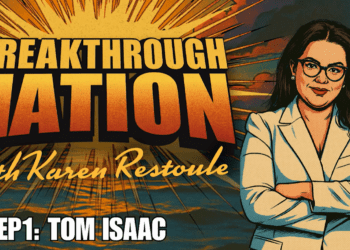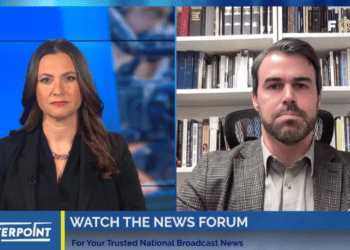Writing for Beacon News, MLI Senior Fellow Ken Coates says a recent Supreme Court decision that expands Aboriginal title to traditional lands assures them “a proper and substantial place” in Canadian resource development.
Instead of treating Aboriginal groups’ participation as a minor irritant to planned developments, Coates argues, business and governments will now need to establish viable partnerships and collaborations.
The column also appeared in the Miramichi Leader, the New Brunswick Telegraph-Journal, the Moncton Times & Transcript, the Kings Country Record and Kelowna’s Daily Courier.
The Yukon News also quoted from the column in its story on the Tsilhqot’in decision.
By Ken Coates, July 1, 2014
With unexpected clarity and decisiveness, the Supreme Court recognized the Tsilhqot’in Aboriginal title to their traditional lands and directed governments on how they must proceed with any future development on non-treaty lands.
Even the Tsilqot’in, who clearly hoped for the best from the courts, seemed gobsmacked by the strength of the judgment in their favour.
This decision is a long time coming. In 1973, the Nisga’a from the Nass River valley in northwest British Columbia had their day in court. They claimed Aboriginal title to their traditional territories and wanted their land rights recognized by the courts. The Nisga’a lost the case, in a rare 3-3-1 split vote, but they had made their point. Prime Minister Pierre Trudeau, previously unimpressed with Aboriginal claims, realized that the Government of Canada could well lose the next such legal challenge. The modern land claims era had started.
But it has been a hard road. Some land claims agreements were signed, particularly in the Yukon, Northwest Territories and Nunavut, and the Nisga’a finally got their settlement. But most of British Columbia remains non-treaty land, and several Yukon and NWT First Nations and Maritime First Nations have not yet signed land surrender treaties.
Even without full legal backing, many First Nations – more than most Canadians realize – worked with governments and corporations to secure appropriate resource development agreements. Others, including the Tsilhqot’in, pushed back and used the courts to clarify their rights and responsibilities. The Supreme Court decision on the Williams case is the capstone to that process.
There will be a great deal of talk about the Tsilhqot’in decision in the next few weeks and months. The Tsilhqot’in won, and they won big. Their Aboriginal rights to their traditional territories have been confirmed. The basis for negotiations in British Columbia and elsewhere has shifted. First Nations have more legal authority than in the past and, like anyone else in a similar situation, they will use it to their benefit.
The Aboriginal power as spelled out in the Williams judgment is not absolute, however. Resource development can proceed, subject to the restated requirements to consult and accommodate. The decision puts a higher standard on Government to demonstrate a compelling provincial or national interest in a specific project – and no doubt governments and First Nations will be back in court to define the collective interest more precisely.
To this point, most Canadians have viewed First Nations’ interests in resource development as a minor irritant and occasionally, as with the Northern Gateway project, a major impediment. Indeed, there has been growing concern expressed by non-Aboriginal people about the steady increase in Aboriginal rights, a grumble that is likely to get louder in the days to come. However, there are more important lessons here.
That the Tsilhqot’in turned to the courts showed their ultimate faith in Canada and their commitment to a peaceful resolution to their outstanding claims. The Supreme Court has vindicated that confidence. Remember, however, that this decision recognizes Aboriginal rights under British and Canadian law. It applies a British legal standard to the First Nations’ claim. It does not represent an assertion of Indigenous legal or political concepts, much as the Tsilhqot’in would have liked that. In short form, the Supreme Court has declared that, in order to honour British and Canadian law, governments have to work differently and more proactively with First Nations.
Importantly, the Williams decision compels governments and companies to work in a way that in fact has already become accepted practice. Resource companies realize that they need to work with Aboriginal people if they want their projects to succeed and they have become increasingly adept at creating viable partnerships and collaborations. Governments, too, understand that the resource development world has been changing rapidly in recent years and that new arrangements are required. The Supreme Court decision puts more authority in the hands of First Nations in non-treaty areas but the directions to government are actually consistent with much current practice.
Canadians have to realize, through this decision, that the country has turned a page in its history. Aboriginal people have been assured, under British and Canadian law, a proper and substantial place in the development of natural resources. Their participation is a matter of right, not corporate generosity or government benevolence.
Ken Coates is Canada Research Chair in regional innovation at the Johnson-Shoyama Graduate School of Public Policy in Saskatchewan, and a senior fellow at the Macdonald-Laurier Institute.




